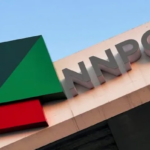If there is anything people of Madobi and Kiru local government areas would like to benefit from as part of the dividends of democracy from 1999 to date, it could be the rebuilding or total reconstruction of the 70-kilometre road that links the area with the state capital. That has been the people’s major pain in the last 12 years of democratic rule in the country.
The occupation of the people has been farming. Agriculture is the largest sector that provides employment and income to the populace. Over 70 per cent of the working population of these two communities are directly or indirectly engaged in agricultural activities that include wet season farming, irrigation farming, storage and distribution of farm produce and animal husbandry.
The area is known to produce crops like groundnuts, guinea corn, maize, gum arabic, rice, honey, pepper, tomatoes in large quantity, in addition to different kinds of vegetables. Livestock comprising cattle, sheep, goats, donkeys, and horses are also reared in the area.
Produce from the area support the food needs of the entire state just as they act as a source of raw materials for the industrial sector. But how farmers transport such products to the state capital has never been the concern of successive administrations in the state.
On 29th May, 1999, Engr. Rabi’u Musa Kwankwaso was sworn-in as fourth civilian governor of Kano State. All he did in that capacity for four year was to award a contract of overhauling and laying of chippings at the beginning of the road and filling of major potholes on the road at a huge amount of money that remained subject of discussion at the time. Being an indigene of that area, Kwankwaso knows the condition of that road more than anybody else.
Malam Ibrahim Shekarau succeeded Kwankwaso in 2003, and he chose to ignore the dreadful condition of the road throughout his first tenure as governor. It took the request of a certain commissioner midway into his second term that Shekarau approved the laying of sand at Sabon-titi round-about and few metres away from it. This, the rains have washed away, thus making the condition worse.
During Engineer Rabiu Musa Kwankwaso’s four-year tenure, only awarded the road contract and Governor Ibrahim Shekarau didn’t consider it during his first tenure.
The terrible condition of the road was best described in 2008 by His Highness, the Emir of Kano, Alhaji (Dr.) Ado Bayero, at a Qur’anic Graduation Ceremony of Government Tahfeezul Qur’an Secondary School, Kiru.
At the occasion, during which the Deputy Governor, Abdullahi Muhammad Gwarzo, was in attendance, the then Kiru local council chairman and now commissioner, Ministry for Local Governments, Alhaji Ali Datti Yako, begged the state government to reconstruct the road to ease the suffering of the people there.
In his address, the emir acknowledged that the road was in bad condition and called on the state government to rehabilitate it. In sum, both the emir and the deputy governor recognized that the rehabilitation of the road was long overdue.
While delivering his speech, the deputy governor said the issue of rehabilitation of the road was about to come to an end. He assured the gathering that the state government had included the project in the 2009 budget. This generated some uproarious moments from the crowd. Even as I write this piece, the road is still in its sorry state.
The state government has so far disbursed about N5 billion for reconstruction of rural roads across the state. The state government, according to Commissioner for Rural and Community Development, Alhaji Musa Ilyasu Kwankwaso, “has spent N4,703,750,591.92 on construction of 227 kilometres of roads across the various local government areas” (ThisDay 2nd April, 2010).
Though N4.7 billion could go a long way in rehabilitating rural roads in a state, it is ignominy for such statistics to come out from a state like Kano. Benue state has, for example, spent about N20 billion on the construction and rehabilitation of rural roads. The state, according Works, Housing and Transport Commissioner, Dr. Eugene Aliegaba, “has spent about N20 billion on the construction and rehabilitation of rural roads across the state in the last three years”, (Daily Independent, Wed. 12th May, 2010).
Apart from the state, the two most affected local councils that is Madobi and Kiru have contributed immensely to making the mess on this road to linger. None of the two councils chairmen, apart from the Yako’s request to the state government in 2008 in Kiru, has made any serious attempt publicly towards calling the attention of the state government to this malaise.
2011 is few months away. The message to the people of this area is that anybody who comes for your vote, from councillor to governor, ask the fellow the sole question, “what is your contribution to reconstruct the road that is our social and economic mainstay?”
Nababa is with the Department of Mass Communication, Bayero University, Kano. ([email protected])
 Join Daily Trust WhatsApp Community For Quick Access To News and Happenings Around You.
Join Daily Trust WhatsApp Community For Quick Access To News and Happenings Around You.



